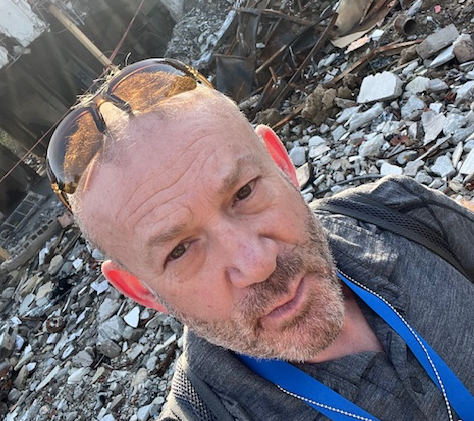
Social Support Following Terrorist Attacks Is Buffer Against Depression for Adolescents
Social Support Following Terrorist Attacks Is Buffer Against Depression for Adolescents
July 20, 2009
BEER-SHEVA, ISRAEL — July 20, 2009 — Researchers at Ben-Gurion University of the Negev (BGU) have conducted a “before and after” study of depression and terrorist attacks in adolescents, demonstrating that strong social support from friends is a buffer from depression in terrorism-related stress.
The study, believed to be the first of its type, was published in the July issue of Pediatrics, the journal of The American Academy of Pediatrics.
“Terrorism often leads to adolescent depression, but little is known about protective factors,” said Prof. Golan Shahar from the Department of Psychology at BGU, who conducted the study with Dr. Christopher Henrich from Georgia State University.
The team examined adolescents (grades 7-9) who were indirectly exposed to a suicide bombing in Dimona, Israel who prior to the bombing there had already completed a questionnaire as a control group in a study of youth risk/resilience under stress for another study.
When the suicide bombing occurred, the researchers decided to focus on the factors that might have a protective effect against developing depression as a result of a traumatic effect, such as the bombing.
Pre-bombing depression and social support from friends, which were measured during initial data collection, were used to predict post-bombing depression measured by a perceived social support scale.
Participants were interviewed by telephone 30 days after the bombing about their bombing-related stress and depression. None of the Dimona teenagers had directly witnessed the bombing, but some had heard the explosion, while others knew people who had suffered physical or emotional damage, or saw media reports of the attack.
“The results showed that bombing-related perceived stress was associated with an increase in continuous levels of depression from before to after the bombing. Pre-bombing social support from friends buffered against this effect,” said Shahar.
“We found that the more socially happy adolescents were, the easier it was for them to protect against the depressogenic effect of terrorism-related perceived stress.”
Shahar states that the “findings should serve as a basis for the development of innovative preventive interventions for adolescents exposed to terror attacks.”
ABOUT AMERICANS FOR BEN-GURION UNIVERSITY
By supporting a world-class academic institution that not only nurtures the Negev, but also shares its expertise locally and globally, Americans for Ben-Gurion University engages a community of Americans who are committed to improving the world. David Ben-Gurion envisioned that Israel’s future would be forged in the Negev. The cutting-edge research carried out at Ben-Gurion University drives that vision by sustaining a desert Silicon Valley, with the “Stanford of the Negev” at its center. The Americans for Ben-Gurion University movement supports a 21st century unifying vision for Israel by rallying around BGU’s remarkable work and role as an apolitical beacon of light in the Negev desert.
About Ben-Gurion University of the Negev
Ben-Gurion University of the Negev embraces the endless potential we have as individuals and as a commonality to adapt and to thrive in changing environments. Inspired by our location in the desert, we aim to discover, to create, and to develop solutions to dynamic challenges, to pose questions that have yet to be asked, and to push beyond the boundaries of the commonly accepted and possible.
We are proud to be a central force for inclusion, diversity and innovation in Israel, and we strive to extend the Negev’s potential and our entrepreneurial spirit throughout the world. For example, the multi-disciplinary School for Sustainability and Climate Change at BGU leverages over 50 years of expertise on living and thriving in the desert into scalable solutions for people everywhere.
BGU at a glance:
20,000 students | 800 senior faculty | 3 campuses | 6 faculties: humanities & social sciences, health sciences, engineering sciences, natural sciences, business & management, and desert research.
For all press inquiries, please contact:
James Fattal, J Cubed Communications
516.289.1496



